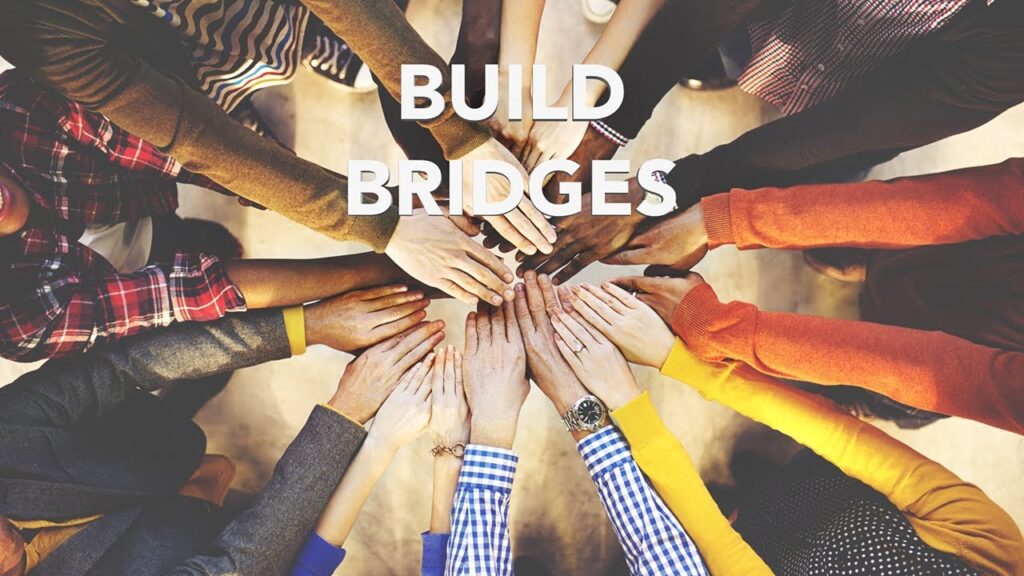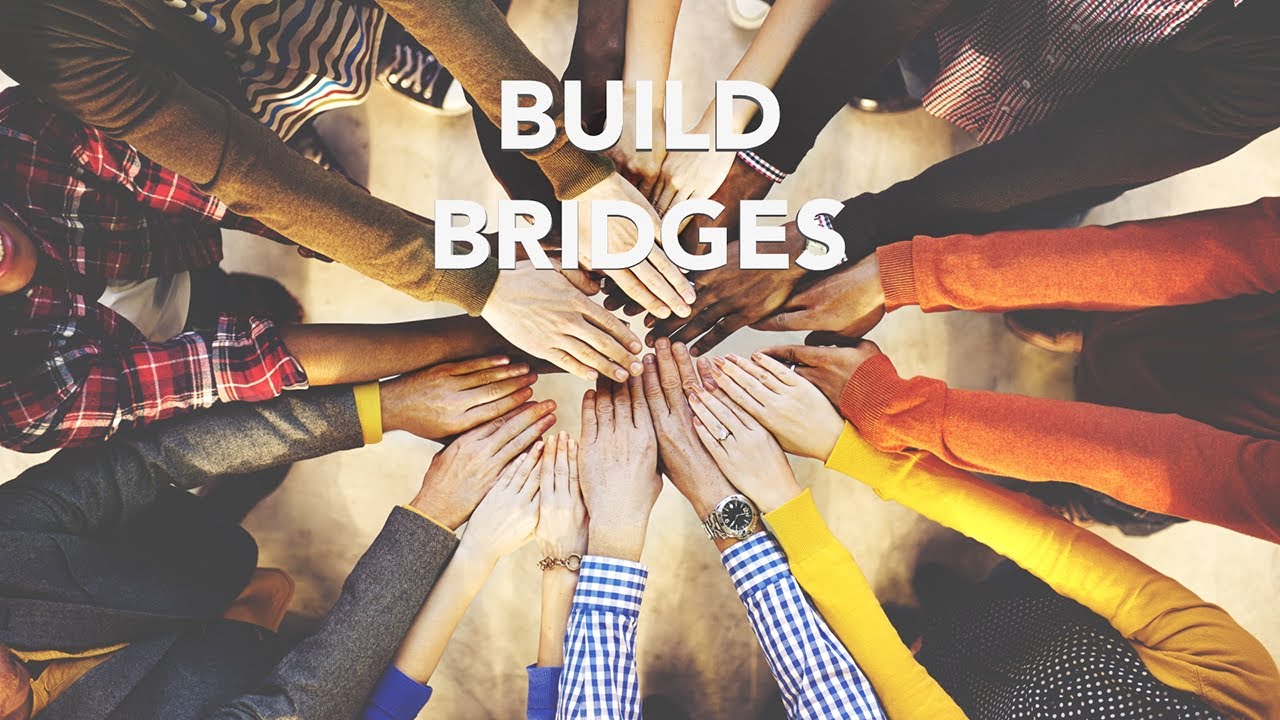
Building Family Bridges: Strengthening Bonds and Fostering Connection
In an increasingly disconnected world, the importance of strong family relationships cannot be overstated. Building family bridges – cultivating meaningful connections and fostering understanding – is crucial for individual well-being and societal harmony. This article explores the multifaceted nature of building family bridges, offering insights and strategies for nurturing stronger, healthier, and more resilient family bonds.
Understanding the Importance of Family Connections
Family is often the bedrock of our lives, providing a sense of belonging, security, and identity. Strong family connections offer numerous benefits:
- Emotional Support: Families provide a safe haven for sharing joys, sorrows, and challenges.
- Increased Resilience: Knowing you have a supportive family can help you weather life’s storms.
- Improved Mental Health: Strong family bonds are linked to lower rates of depression and anxiety.
- Enhanced Self-Esteem: Feeling loved and accepted by your family boosts self-worth.
- Positive Social Development: Children who grow up in supportive families tend to have better social skills.
Identifying Barriers to Family Connection
Despite the inherent value of family relationships, various factors can create distance and strain. Recognizing these barriers is the first step toward building family bridges.
Communication Breakdown
Poor communication is a major obstacle. This can manifest as:
- Lack of Openness: Reluctance to share feelings and thoughts.
- Misunderstandings: Failing to listen actively and interpret messages accurately.
- Conflict Avoidance: Suppressing disagreements instead of addressing them constructively.
- Criticism and Blame: Focusing on flaws and assigning fault instead of finding solutions.
Generational Differences
Different generations often have contrasting values, beliefs, and expectations, leading to friction. These differences can stem from:
- Cultural Norms: Varying attitudes toward work, family roles, and social issues.
- Technological Advancements: The digital divide can create communication gaps.
- Life Experiences: Historical events and economic conditions shape perspectives.
Geographical Distance
Living far apart can make it challenging to maintain close relationships. The lack of physical presence can lead to feelings of isolation and disconnection. However, with intentional effort, geographical distance doesn’t have to mean emotional distance. [See also: Long-Distance Family Relationships]
Past Hurts and Unresolved Conflicts
Past traumas, unresolved conflicts, and lingering resentments can create deep divisions within families. These issues often require professional intervention to heal.
Busy Schedules and Time Constraints
In today’s fast-paced world, it’s easy to let family time slip away. Work, school, and other commitments can leave little room for meaningful interaction.
Strategies for Building Family Bridges
Fortunately, there are many proactive steps you can take to building family bridges and strengthen family bonds. These strategies require commitment, patience, and a willingness to adapt.
Improve Communication Skills
Effective communication is the cornerstone of any healthy relationship. Consider these techniques:
- Active Listening: Pay attention, ask clarifying questions, and show empathy.
- Open and Honest Expression: Share your thoughts and feelings respectfully.
- Nonviolent Communication: Focus on needs and feelings rather than blame and criticism.
- Regular Check-Ins: Schedule dedicated time for family conversations.
Embrace Differences and Seek Understanding
Instead of judging family members for their differences, try to understand their perspectives. This involves:
- Perspective-Taking: Putting yourself in their shoes and considering their experiences.
- Respectful Dialogue: Engaging in conversations with an open mind and a willingness to learn.
- Finding Common Ground: Identifying shared values and interests.
Prioritize Quality Time Together
Make a conscious effort to spend quality time with your family. This could involve:
- Family Meals: Sharing meals together without distractions.
- Activities and Hobbies: Engaging in activities that everyone enjoys.
- Family Outings: Planning trips and adventures together.
- Creating Traditions: Establishing rituals that create a sense of belonging.
Forgive Past Hurts and Seek Reconciliation
Holding onto resentment can poison family relationships. Forgiveness is essential for healing and moving forward. This may require:
- Acknowledging the Hurt: Recognizing the pain caused by past actions.
- Expressing Remorse: Offering sincere apologies for wrongdoing.
- Letting Go of Anger: Releasing the negative emotions associated with the past.
- Seeking Professional Help: Considering therapy or counseling to address deep-seated issues.
Utilize Technology to Stay Connected
Technology can be a powerful tool for building family bridges, especially when geographical distance is a factor. Utilize:
- Video Calls: Seeing and hearing each other can create a sense of closeness.
- Social Media: Sharing photos and updates can keep family members informed about each other’s lives.
- Messaging Apps: Sending quick messages and updates throughout the day.
- Online Games: Playing games together can be a fun way to connect.
Show Appreciation and Affection
Expressing love and appreciation is crucial for strengthening family bonds. This can involve:
- Verbal Affirmations: Telling family members how much you care about them.
- Acts of Service: Doing things to help and support them.
- Gifts: Giving thoughtful presents that show you care.
- Physical Touch: Offering hugs, pats on the back, and other forms of physical affection.
Establish Clear Boundaries
While closeness is important, it’s also essential to establish healthy boundaries. This involves:
- Respecting Individual Needs: Recognizing that everyone has different needs and preferences.
- Setting Limits: Clearly communicating what you are and are not willing to do.
- Enforcing Consequences: Following through on consequences when boundaries are violated.
Seek Professional Guidance When Needed
Sometimes, family issues are too complex to resolve on your own. Don’t hesitate to seek professional help from a therapist or counselor. They can provide guidance and support in:
- Improving Communication: Teaching effective communication skills.
- Resolving Conflicts: Facilitating constructive dialogue and finding solutions.
- Healing Past Traumas: Providing therapy to address deep-seated issues.
The Long-Term Benefits of Building Family Bridges
Building family bridges is an ongoing process that requires consistent effort and commitment. However, the long-term benefits are well worth the investment. Strong family relationships provide:
- A Sense of Belonging and Security: Knowing you have a supportive family can provide a sense of stability and comfort.
- Increased Happiness and Well-being: Strong family bonds are linked to greater life satisfaction.
- Improved Physical Health: Research suggests that strong social connections can boost the immune system and reduce the risk of chronic diseases.
- A Legacy of Love and Support: Strong family relationships create a positive legacy for future generations.
In conclusion, building family bridges is an essential endeavor for creating a happier, healthier, and more connected life. By prioritizing communication, understanding, and quality time, families can overcome challenges and forge stronger, more resilient bonds. Remember that building these bridges is a continuous process, but the rewards of a strong and supportive family are immeasurable. Fostering open communication is key to building family bridges. Investing time and effort in building family bridges yields invaluable returns. The journey of building family bridges is a worthwhile pursuit. Embrace the opportunity for building family bridges and create a legacy of love and connection. Prioritize building family bridges for a brighter future. Consistent effort is essential in building family bridges. Remember the importance of building family bridges for overall well-being. Technology can aid in building family bridges across distances. Strong communication is key to building family bridges. Actively engage in building family bridges for lasting impact. The process of building family bridges can be challenging, but rewarding.

